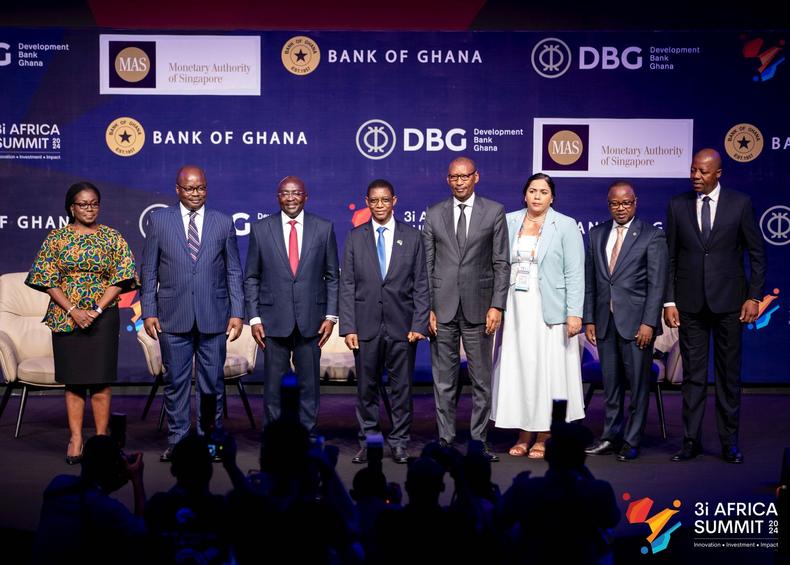Project DESFT aims to promote trade among small enterprises through the utilization of a Central Bank Digital Currency (CBDC) and a stablecoin, already operational in Ghana and Singapore
The collaboration between the Bank of Ghana (BOG) and the Monetary Authority of Singapore (MAS) has marked a significant milestone with the successful completion of the Digital Economy Semi-Fungible Token (DESFT) Project’s proof-of-concept phase, as reported by various local media outlets.
This ambitious initiative underscores the commitment of both nations to foster closer economic ties and facilitate trade activities, particularly among micro, small, and medium enterprises (MSMEs).
At the heart of the DESFT Project lies leveraging emerging technologies, notably blockchain and digital tokens, to streamline and enhance cross-border trade processes.
Through utilizing semi-fungible tokens, the project seeks to address longstanding challenges MSMEs face in accessing global markets, including issues related to authentication, credential verification, and financial inclusivity.
During the project, live transactions have been conducted between participating entities from Ghana and Singapore, showcasing the practical applicability of the DESFT framework.
These transactions were facilitated by the Universal Trusted Credentials semi-fungible token protocol, a cutting-edge solution developed by the United Nations Development Program.
Notably, these tokens were meticulously crafted to encapsulate verified licenses, certificates, and trade records, ensuring the integrity and authenticity of each transaction.
The exchange mechanism employed within the DESFT Project is underpinned by a robust infrastructure, encompassing a stablecoin pegged to the Singapore dollar (XSGD) and the BOG’s e-cedi central bank digital currency (CBDC).
This innovative approach to digital asset exchange is facilitated through a Purpose Bound Money protocol deployed on a distributed ledger platform, ensuring transparency, security, and efficiency throughout the transaction lifecycle.

The Purpose Bound Money protocol development represents a collaborative effort between MAS, the International Monetary Fund (IMF), and the central banks of Italy and South Korea.
This groundbreaking protocol integrates programmable money and programmable payment technology, enabling seamless interoperability and interoperable cross-border transactions.
Notably, the protocol has undergone rigorous testing by leading global retailers, including Amazon, further validating its robustness and scalability.
Kwame Oppong, Director of Fintech and Innovation at the Bank of Ghana, provided insights into the project’s objectives and future trajectory during the 3i Africa Summit in Accra.
He emphasized the pivotal role of the DESFT Project in advancing financial inclusion and catalyzing economic growth across the African continent.
Moreover, Oppong highlighted the project’s strategic focus on supply chain finance and cross-border payments, underscoring its potential to unlock new opportunities for MSMEs and drive sustainable development. He said,
“After nearly a year and two phases of development, we have crafted a reliable information exchange solution founded on UTC standards and Semi-fungible Token technology […] and conducted real trade experiments which fully align with our predetermined objectives.”

Source: benjamindada.com
Despite the commendable progress achieved thus far, details regarding the semi-fungible token technology utilized within the DESFT framework still need to be discovered.
Ample FinTech, the Singapore-based entity identified as the developer of the DESFT, disclosed that the technology operates on the ERC-3525 standard atop the Ethereum blockchain.
This revelation underscores the project’s alignment with industry best practices and its commitment to leveraging established blockchain infrastructure to drive innovation and efficiency.
The upcoming Singapore Fintech Festival slated for November promises to shed further light on the Digital Economy Semi-Fungible Token.
A scheduled panel discussion is poised to delve deeper into the intricacies of the DESFT framework, elucidating its transformative potential and exploring avenues for collaboration and partnership.
Notably, the DESFT’s unique proposition, combining elements of non-fungible tokens (NFTs) and traditional blockchain data, holds promise for unlocking new digital ownership and value exchange paradigms.
In parallel, the e-cedi, the central bank digital currency piloted by the Bank of Ghana, continues to undergo rigorous testing and evaluation.
While no official launch date has been announced for the e-cedi and the associated CBDC infrastructure, stakeholders remain optimistic about its potential to revolutionize financial services and drive inclusive economic growth in Ghana and beyond.
In conclusion, the Digital Economy Semi-Fungible Token Project is a testament to the transformative power of collaboration and innovation in driving sustainable economic development.
Ghana and Singapore are pioneering new frontiers in cross-border trade facilitation, financial inclusion, and digital transformation by taking advantage of the potential of blockchain technology and digital tokens.
As the project evolves, stakeholders are poised to reap the benefits of enhanced efficiency, transparency, and inclusivity in the global digital economy landscape.



